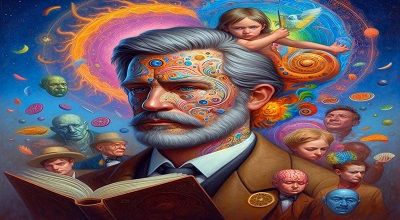Carl Jung’s Theory of Personality
Carl Jung’s theory of personality is a prominent framework that can be applied to learning and education. Jung, a Swiss psychiatrist and psychoanalyst, developed a theory of personality that focuses on individual differences and how people perceive and interact with the world. His theory includes several key concepts that can be relevant to the field of education:
Psychological Types:
Jung proposed that individuals have innate preferences in the way they perceive and make decisions. He identified four dichotomies: Extraversion (E) vs. Introversion (I), Sensing (S) vs. Intuition (N), Thinking (T) vs. Feeling (F), and Judging (J) vs. Perceiving (P). Understanding these preferences can help educators tailor their teaching methods to better suit students’ natural inclinations.
Learning Styles:
Jung’s theory suggests that individuals may have different learning styles based on their psychological preferences. For example, extroverts might benefit from group activities and discussions, while introverts may prefer independent study. Similarly, sensing individuals may prefer concrete, practical examples, whereas intuitive individuals may enjoy exploring abstract concepts.
Personal Growth and Individuation:
Jung emphasized the importance of individuation, a process of becoming one’s true self by integrating all aspects of the personality. In an educational context, fostering personal growth and self-awareness can be valuable. Encouraging students to explore their interests, values, and unique strengths contributes to their overall development.
Archetypes:
Jung proposed the existence of universal symbols and themes called archetypes, which are part of the collective unconscious. Incorporating archetypal themes into educational materials and discussions can add depth and resonance to the learning experience, as these symbols tap into shared human experiences.
Integration of Opposites:
Jung believed that a balanced individual integrates opposing psychological forces within themselves. In an educational setting, this could mean promoting a holistic approach to learning that values both analytical thinking and creative expression, or combining theoretical knowledge with practical application.
Cultural and Contextual Considerations:
Jung recognized the influence of culture on personality. In an educational context, it’s essential to consider cultural diversity and create an inclusive environment that respects and incorporates various cultural perspectives.
Summary
Applying Jung’s theory to education involves recognizing and respecting the diversity of learners, acknowledging different learning preferences, and promoting personal growth and self-awareness. While the theory provides a rich framework for understanding personality, it’s important to note that individuals are complex and may not neatly fit into specific categories. Therefore, flexibility in teaching approaches is crucial.
